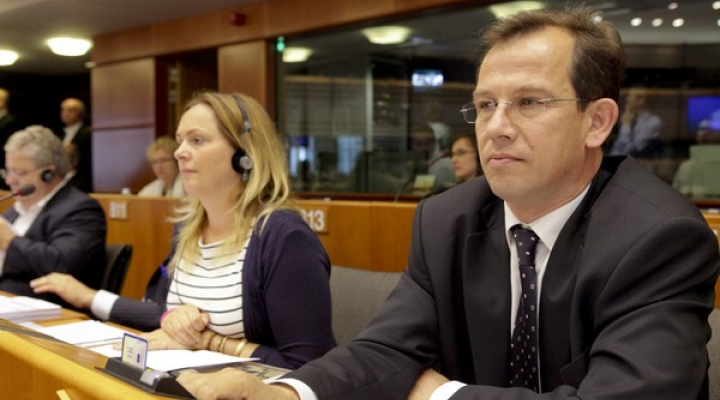Superficial and erroneous findings about the Hungarian education in Romania in an EP study - Sógor Csaba requests corrections
The latest research on minority languages and education commissioned by the European Parliament draws several erroneous conclusions regarding the Hungarian education in Romania. According to Csaba Sógor the most unrealistic one is that the most important achievement of the Hungarian native language education in Romania is that students who graduate can obtain jobs in Hungary.
At the initiative of the European Parliament’s Committee for Culture and Education (CULT) international experts investigated the situation of minority language education in Europe. RMDSZ MEP Sógor Csaba thinks it very important that such a document exists, as he has been working for years to draw the attention of European decision makers to the issue of minority education. „Almost 10 percent of European Citizens belong to a linguistic minority, and so this affects 40-50 million people. Education related issues, however, are dealt with at a member state level, and thus, they often encounter challenges” – said the MEP, who analysed the paragraphs on Romania of the EU study.
Sógor addressed the CULT Committee pointing out that the study has erroneous conclusions and findings, sending the responsible directorate amendments in the interest of a realistic, objective picture on the matter. According to one of the paragraphs of the study, pupils who graduate from an educational institution in Romania with Hungarian as a teaching language have a better chance of finding a job in Hungary, a claim that the authors support with a poor command of students of the Romanian language. This suggests that children belonging to the Hungarian community in Romania had better chances to find a job in Romania if they studied in Romanian.
-We pointed out that this conclusion is far from the truth as proper teaching of the Romanian language is a duty of the school system in Romania, and the lack of a good command of it stems from the fact that Hungarian children are taught Romanian as a mother tongue, when in reality their mother tongue is Hungarian. Romanian should be taught as a second language as per the education law no. 1/2011 – stated the MEP. In the opinion of Csaba Sógor it is a mistake to say that children who learn in Hungarian can only find work in Hungary or in their ethnically compact enclaves: „This is a ridiculous oversimplification and there are numerous examples that show the opposite. This cannot be the statement that an EU level document is based on.”
The study makes a mistake when it enumerates the universities in Romania where one can be taught in Hungarian. It fails to mention the Babes-Bolyai University of Cluj-Napoca, the Medicine and Pharmacology or the Art University of Târgu-Mureș. Csaba Sógor asked for amendments and corrections to be made. – As per the education law no. 1/2011 these three institutions are defined as multicultural universities. Among other things this means that they are required to handle Hungarian education as a separate organizational unit. We asked that the study show that the University of medicine and Pharmacology does not comply with this law to this day! – said the MEP.
Csaba Sógor has expressed hope that the Parliament will have further such initiatives and studies, in which the challenges the Hungarian education in Romania is facing will be presented realistically and objectively.











